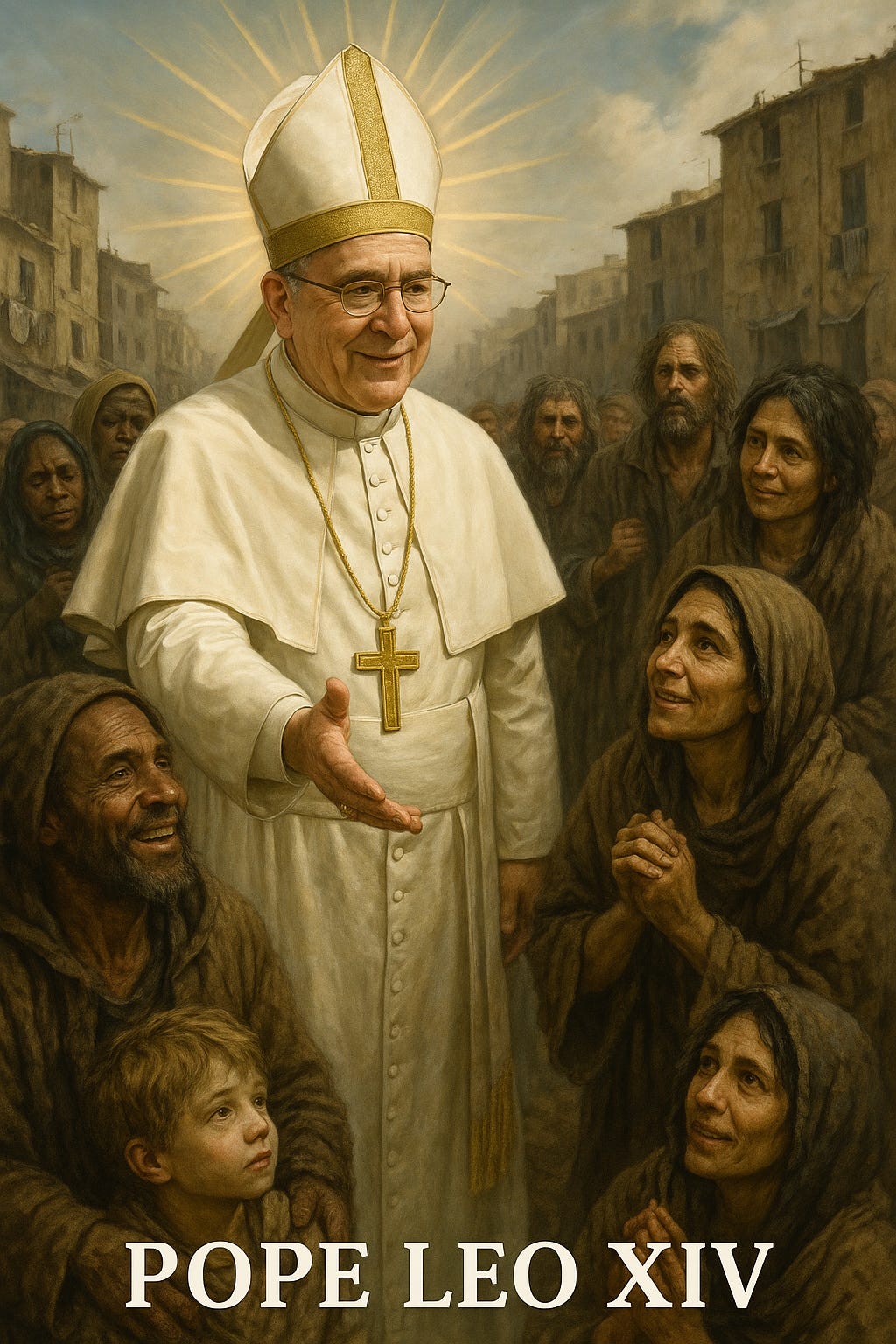Cardinal Robert Francis Prevost, from Chicago, is now Pope Leo the Fourteenth. The name alone carries the heavy, honeyed breath of history, the perfumed rust of old Empire, of robes stitched with guilt and gold, of a Church that has, more often than not, dined with tyrants and muttered grace beside the architects of war.
And yet, here he is. A man who walked the scorched fields of Peru, where the mountains mourn in Quechua and the poor bleed quietly. A man who heard the weeping of mothers under tin roofs, who saw the Gospel written not in Latin but in hunger. Prevost is not the revolution. But he may be a kind of whisper.
Capitalism and the Cry of the Poor
We know, of course, what the Church is. A colossus of contradiction. For centuries it sanctified the silence of the oppressed, and now it speaks, ever so softly, of justice. In Chiclayo, where the soil is red with the sweat of campesinos, Prevost stood not above but among. He listened. That counts, in an age when listening is revolutionary.
He has never torn capitalism limb from limb, not like the liberation theologians who once dared to say "Christ" in the same breath as "class struggle." But he has seen capitalism’s slow, grinding theft of dignity, and he doesn’t pretend it’s holy. Perhaps that's enough to begin with.
That he chose the name Leo is no accident. Leo XIII, that flawed, curious predecessor, dared to speak of workers and wages when the world believed God preferred the rich. Rerum Novarum. A document that placed the sacred beside the squalid. Maybe Leo XIV hopes to write his own verse in that long, unfinished poem of justice. Maybe he understands that the Church must choose: become the balm or be the blade.
On Gaza, and the Sin of Neutrality
And then there is Gaza. That strip of scorched earth and defiance. Where diplomacy has long since become a synonym for complicity. The Church, with its velvet gloves and marble tongues, has always hesitated here; afraid to name the crime, lest it lose the ear of kings.
Prevost speaks of peace. Of unity. Of the Madonna of Pompeii. Words soft as petals. But peace, in the face of genocide, is a kind of betrayal. Still, he has walked through countries torn by conflict. He has known what it means to console without erasure. Perhaps he will learn, as Francis began to, that the only peace worth having is the kind born from justice, not silence.
Women and the Quiet Thunder
On women, he speaks in the ancient dialect of caution. No priesthood, not yet. Not ever, perhaps. But he recognizes that the Church’s spine is not its bishops or its gold, but the women who carry its weight. The catechists, the healers, the dissenters cloaked in obedience. If he truly believes in synodality, then he must know: without women, there is no Church left to guide.
He may not open the gates, but perhaps he’ll stop nailing them shut.
LGBTQ+ and the Edges of Mercy
And to those whom the Church has long rendered invisible, the queer, the wounded, the exiled by doctrine, his gaze is pastoral, not punitive. He won’t rewrite the catechism. But he may refuse to weaponize it. He may be willing to say what too many popes have swallowed: that to love is not a sin. That to exist is not a crime.
The Long Game of Grace
I am not a Catholic. I believe in the soil, in the strike, in the stubborn dignity of human hands. I do not believe in miracles, only in movements. But I am not blind. Power, wielded differently, can become something almost like grace.
Leo XIV will not tear down the Vatican's walls. He will not pour gold into the hands of the poor. He is not the storm. But maybe, just maybe, he is a change in the weather. And in a world burning with greed and grief, sometimes a shift in the wind is the first mercy we’re offered.
Michael “Lefty” Morrill is a former minister in the American Baptists Churches and is currently the organizing director of New Hampshire Peace Action.





“The Church must choose: become the balm or be the blade.” Well said.